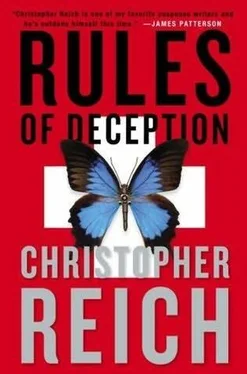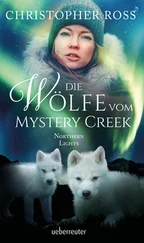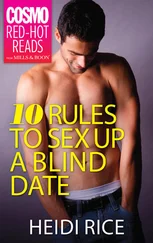And then in 1965, it was reborn. From one day to the next, workmen arrived and began to restore the decrepit building. New windows were put in. Sturdy doors installed. Farther down the road a guard post was built. Needing a secluded getaway in which to discuss its most confidential affairs, another organization had claimed Flimelen for its own. Not a government, but the creation of many intent on preventing disaster or war.
Four men and one woman sat around a long table in the Great Hall. At the table’s head presided a stiff, unsmiling man of Middle Eastern extraction with a fringe of graying hair and a neatly trimmed mustache. He wore a scholar’s narrow spectacles, and indeed, he held degrees in law and diplomacy from universities in Cairo and New York. Though it was close to midnight, and the others had long since taken off their neckties and loosened their collars, he kept his jacket on, his necktie in the finest order. He viewed his position with the utmost gravity. For his efforts, he had been awarded the Nobel Peace Prize. Few people could boast that the fate of the world depended on him and not be branded an arrogant, bald-faced liar. He was one.
His name was Mohamed ElBaradei. He was the chairman of the International Atomic Energy Agency.
“This can’t be true,” said ElBaradei, running his finger across the report.
“I’m afraid there’s no doubting it,” said the man next to him, Yuri Kulikov, a poker-faced Russian who headed the IAEA’s Department of Nuclear Energy.
“But how?” ElBaradei searched the faces gathered at the table. “If this is so, we’ve failed in our every duty.”
“A program of institutionalized deception,” said Kulikov. “A shell game. For years, we’ve concentrated our inspection efforts in one spot, while they were secretly working in another.”
The men and woman seated beside him came from the top ranks of the secretariat, the professional staff that ran the IAEA. There was Oniguchi, a native of Japan, who headed Nuclear Science and Applications; Brandt, an Austrian and the sole woman in the room, who ran Technical Cooperation; Kulikov; and Pekkonen, the stolid Finn who headed up Safeguards and Verification, the IAEA’s most well-known department.
“There can be no question as to the data’s accuracy,” said Pekkonen. “The sensor was equipped with a next-generation chip capable of pinpointing gamma ray emission signatures with ten times the precision of the older model.”
ElBaradei was not a trained scientist, but twenty years’ work at the IAEA in Vienna had provided a grounding in the principles of nuclear physics. Emissions from radioactive materials like uranium or plutonium give off unique signatures. If accurately measured, those signatures indicate the age and enrichment of the radioactive material, and more importantly, as far as he and the individuals seated around the table were concerned, its intended use.
Uranium in its natural form could not be used to incite a nuclear reaction. It had to be enriched, or pumped up with a particular isotope-uranium-235. The most common means was to process uranium hexafluoride gas through a centrifuge, a rapidly spinning steel drum. Every time the gas was cycled, it became more enriched. To speed up the process, centrifuges were linked one to another so that the gas cascaded from one machine to the next. The path to success was straightforward: the more centrifuges you had, the quicker the uranium could be enriched.
For use in nuclear power plants, the radioactive mineral had to be enriched to thirty percent. For use as a fissile material-that is, to be capable of generating a nuclear reaction-it needed to achieve a level of ninety-three percent. The paper under ElBaradei’s eyes reported gamma ray signatures of an astounding ninety-six percent.
“The butterfly was over the target area for seven days,” Pekkonen went on. “In that time, it sent back thousands of atmospheric measurements. It’s unlikely that they’re all wrong.”
“But these readings are sky-high,” protested ElBaradei. “How could they have hidden it from us for so long?”
“The new facility was built deep beneath the ground and disguised as an underground reservoir.”
“If it’s so well disguised, how did we find it?”
Pekkonen leaned forward, his blond forelock contrasting with his florid complexion. “A rumor about its location was passed to us by a member of the American delegation to the United Nations. It came from a source high in the Iranian government. The Americans thought we might be able to confirm or disprove it. We had an inspection team in a country a hundred miles to the south. We were able to launch and monitor the butterfly from that site without attracting attention.”
“And you did this without my approval and in complete violation of our mandate to inspect facilities with the permission and cooperation of our hosts?”
Pekkonen nodded.
“Well done,” said ElBaradei. “Do the Americans know about our findings yet?”
“No, sir.”
“Keep it that way.” ElBaradei looked at the faces around the table. “A year ago, we came to the consensus that Iran possessed five hundred centrifuges and had been successful in enriching no more than a half kilo of uranium to sixty percent. Nowhere near weapons grade. Now this! Just how many centrifuges are necessary to generate these kinds of readings?”
“Over fifty thousand,” said Oniguchi from Nuclear Science.
“And just where are we to assume they obtained these centrifuges? This isn’t a crate of counterfeit iPods we’re talking about. It’s a planeload full of the most highly monitored, closely regulated machinery in the world.”
“Clearly, they were smuggled in,” said Pekkonen.
“Clearly,” ElBaradei repeated. “But by whom? From where? I have four hundred inspectors whose job it is to keep an eye out for this kind of thing. It was my opinion until five minutes ago that they were competent in the extreme.” He removed his eyeglasses and set them on the table. “And so? How much weapons-grade uranium are we to assume they now possess?”
Pekkonen looked nervously at his superior. “Sir, it’s our conclusion that the Republic of Iran currently possesses no less than one hundred kilograms of enriched uranium-235.”
“One hundred? And how many bombs can they make out of that?”
The Finn swallowed. “Four. Maybe five.”
Mohamed ElBaradei replaced his glasses. Four. Maybe five. He might as well have said a thousand. “Until we receive an independent evaluation of this data, no one in this room is to repeat a word of these findings.”
“But mustn’t we share-” began Milli Brandt, the Austrian woman.
“Not a word,” hammered ElBaradei. “Not to the Americans. Not to our colleagues in Vienna. I want absolute silence. The last thing we need is an incident before we can confirm these findings.”
“But sir, we have a responsibility,” she went on.
“I’m fully aware of our responsibility. Do I make myself understood?”
Milli Brandt nodded her head, but her eyes betrayed a different decision.
“The meeting is adjourned.”
As ElBaradei waited for the others to leave, he sat listening to the wind rattle the windows, tormented by his thoughts. Finally, the door slammed. The voices died. He was alone.
Cupping his hands, he stared out into the night sky. He was not a religious man, but he found himself lacing his fingers in prayer. If news of the report were to leave this room, the consequences would be immediate and devastating.
“God help us, every man,” he whispered. “It will be war.”
The Pilot ran his hand over the aircraft’s wings as he completed his preflight check. The gas tanks were full. The antifreeze topped off. The bird was good to go. He walked down the runway, kicking away loose rocks.
Читать дальше












